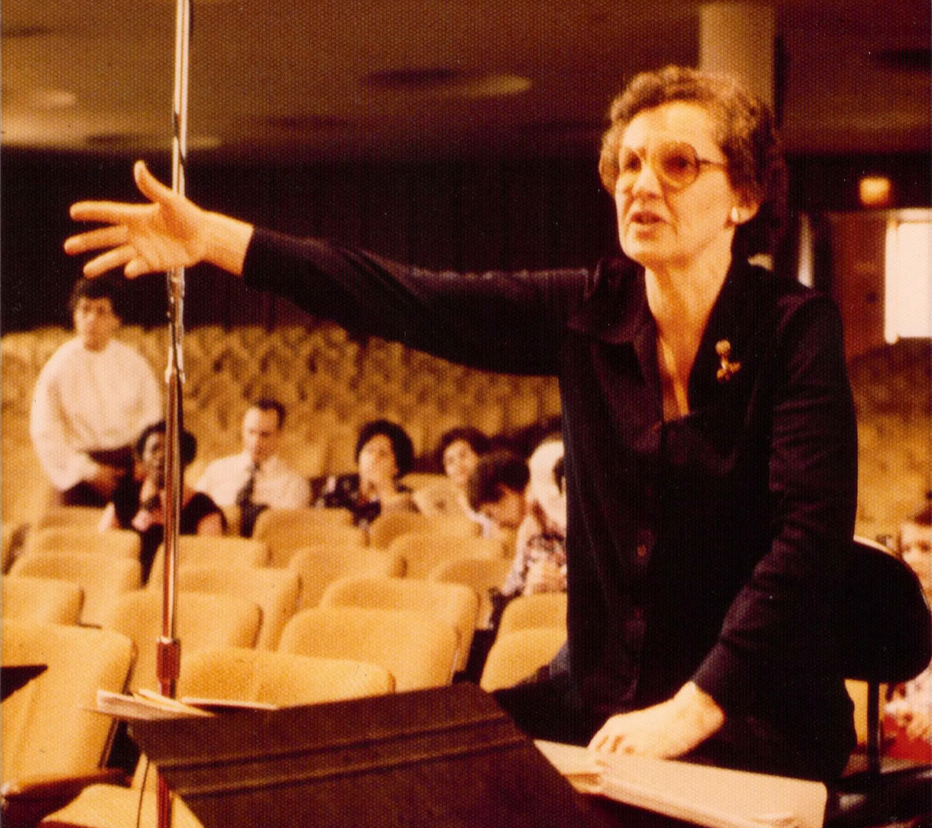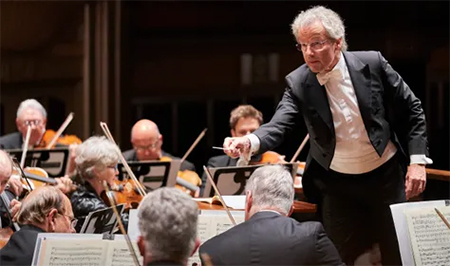by Daniel Hathaway
BREAKING NEWS: Franz Welser-Möst announces the conclusion of his tenure as Music Director of The Cleveland Orchestra in 2027. Read the press release here.
Tonight at 7:30 at Severance Music Center, Franz Welser-Möst and The Cleveland Orchestra raise the curtain on their winter season with Ernst Krenek’s Kleine Symphonie, Gustav Mahler’s Adagio from Symphony No. 10, and a double dose of Béla Bartók — his String Quartet No. 3 arranged for string orchestra, and the Suite from The Miraculous Mandarin. Tickets available online.
IN MEMORIAM:
In an obituary tribute in today’s print edition, the New York Times writes:
Alice Parker, whose arrangements of hymns, folk songs, and spirituals were used in concert halls and churches across America, and who composed 11 song cycles and four operas, died on Dec. 24 at her home in Hawley, Mass. She was 98.

For two decades she also worked with the most prominent American chorus of her day, the Robert Shaw Chorale, collaborating with Mr. Shaw on hundreds of works.
Read the article here.
NEWS BRIEFS:
Paris Wolfe reports for cleveland.com on the latest development in a continuing story about troubles at The Cleveland Ballet:
“The Cleveland Ballet has terminated its relationship with co-founder Gladisa Guadalupe after external legal and forensic accounting investigations confirmed serious operational and financial irregularities within the organization, according to an announcement Wednesday by the ballet’s board of directors.” Read the story here.
The Cleveland Orchestra will host its second-ever sensory-friendly concert on February 24 at 11:00 am, following up on its first such concert this past November. As announced in a press release, “The event offers accommodations to create a more inclusive concert atmosphere for people of all ages with autism spectrum disorder or sensory sensitivity.” Find out more and get tickets here.
And late last month, the Orchestra announced the appointment of two new members: assistant principal second violin Jason Yu and bass trombone Luke Sieve, who were both slated to start this week. Read more about them in this press release.
TODAY’S ALMANAC:
Here’s a mixed bag of January 11 events in classical music history to explore.
On this date in 1937, Irish composer and pianist John Field, who invented the Nocturne — and wrote 18 or 21 such pieces, depending on how you decide to title them — died in Moscow, where he had settled in 1802, attracted by the vibrant cultural life of the Russian capital. Click here to listen to John O’Conor play the “Complete” 18 and puzzle along with the commentators why Field isn’t as well-known as his contemporaries — like Chopin.
In 1895, clarinetist Richard Mühlfeld joined Johannes Brahms in the first performance of the composer’s Clarinet Sonata, Op. 120, No. 1 in Vienna. By the last decade of the 19th century, the composer had intended to retire from writing music, but hearing Mühlfeld play Weber and Mozart in Meiningen changed his mind. The results were the two solo sonatas of Op. 120 (often poached by violists), the Op. 114 Trio, and Op. 115 Quintet. Click here to listen to Martin Fröst and Yuja Wang interpret the Second Clarinet Sonata.
Possibly the best-known French composer with the smallest portfolio of works to his credit, Maurice Duruflé was born in Louviers on this date in 1902. He was assisting Louis Vierne at Notre-Dame in Paris on June 2, 1937 when Vierne died on the organ bench, and two years later was soloist for the premiere of Poulenc’s Organ Concerto. He passed the torch of French organ music to his students Pierre Cochereau, Jean Guillou, and Marie-Claire Alain before retiring from St-Étienne-du-Mont after a serious automobile accident.
Click here to listen to a rare recording of Maurice Duruflé playing the Prelude and Sicilienne from his Suite for Organ.
And on January 11, 1940 Prokofiev’s ballet Romeo and Juliet debuted in Leningrad. Most often heard in the form of two orchestral suites, the entire work makes a big impression. Watch it here with choreography and staging by Rudolf Nureyev performed by the Ballet and Orchestre de l’opéra de Paris, conducted by Vello Pähn.
Finally, on this date in 2001, the first American performance of John Adams’ Nativity oratorio El Niño was given in San Francisco, with Kent Nagano conducting the San Francisco Symphony and Chorus and the Piedmont Children’s Choir. Click here to begin watching a 2000 live recording from the Théâtre du Châtelet in Paris starring Dawn Upshaw, Lorraine Hunt Lieberson, and Willard White. Nagano conducts the Deutsches Symphonie-Orchester Berlin.




